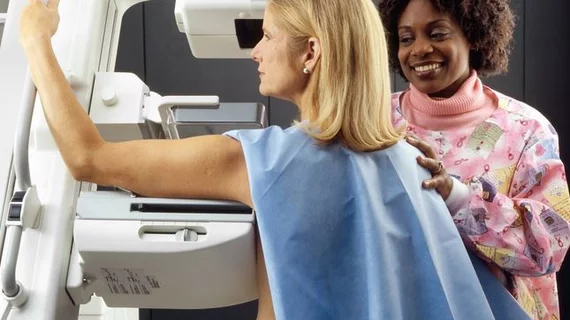Women remain unsure about the benefits of risk-based breast cancer screening
Many women are skeptical about the concept of undergoing risk-based breast cancer screening, according to a new study published in the Journal of General Internal Medicine. To get more women to feel comfortable with the idea of undergoing mammographic screening based on their estimated breast cancer risk, communication from healthcare providers will need to significantly improve.
“Implementing risk-based screening may be challenging,” wrote lead author Xiaofei He, PhD, MPH, of the Geisel School of Medicine at Dartmouth in Hanover, New Hampshire, and colleagues. “Women will be asked to change their routine screening habits, understand the rationale for this new approach, and believe it is in their best interest. In this context, our objective was to explore women’s views of risk- based mammography and the acceptability of this potential screening paradigm.”
The authors held four focus group discussions about screening mammography in New Hampshire and Vermont. Twenty-nine women participated, and 27 said they have undergone a mammogram in their lifetime. All participants were white, and a majority were highly educated.
Overall, eight women had previous knowledge of the concept of risk-based screening guidelines for other cancers. That same number of women also said they believe the basic concept of risk-based screening “made sense” to them.
Thirteen women said that “fear and fatigue from false positive results” made risk-based mammographic screening more appealing to them than standard screening. Fourteen women, meanwhile, expressed concern that being screened less could result in an important diagnosis being missed completely.
The authors also noted that some women said undergoing a routine mammogram was viewed positively, even if it required a biopsy. Some women flat-out said they had started doing annual mammograms and they saw no reason to change that pattern now.
Also, 18 women “expressed concerns about the feasibility of estimating personal breast cancer risk” while six women were worried risk-based screening was just a way for healthcare providers to save money as opposed to actually helping patients.
“Women were skeptical about the motivation for risk-based screening, believing that it was about money rather than reducing screening harms,” the authors wrote. “Skepticism that this paradigm could be implemented was heightened by concerns about poor communication between women and their health care providers.”
He and colleagues concluded that communication will be the key for women to gain a realistic understanding of risk-based breast cancer screening.
“Broad acceptability of risk-based screening will require clearer interactive communication about its rationale and feasibility supported by consistent messages from the health care team as well as breast cancer awareness campaigns, news stories and medical organizations,” they wrote. “Public health messages, the media, and healthcare professionals need to communicate both the benefits and harms of routine (annual or biennial) screening in a clear and balanced way.”
Previous Radiology Business coverage of research related to risk-based breast cancer screening can be read here and here.

